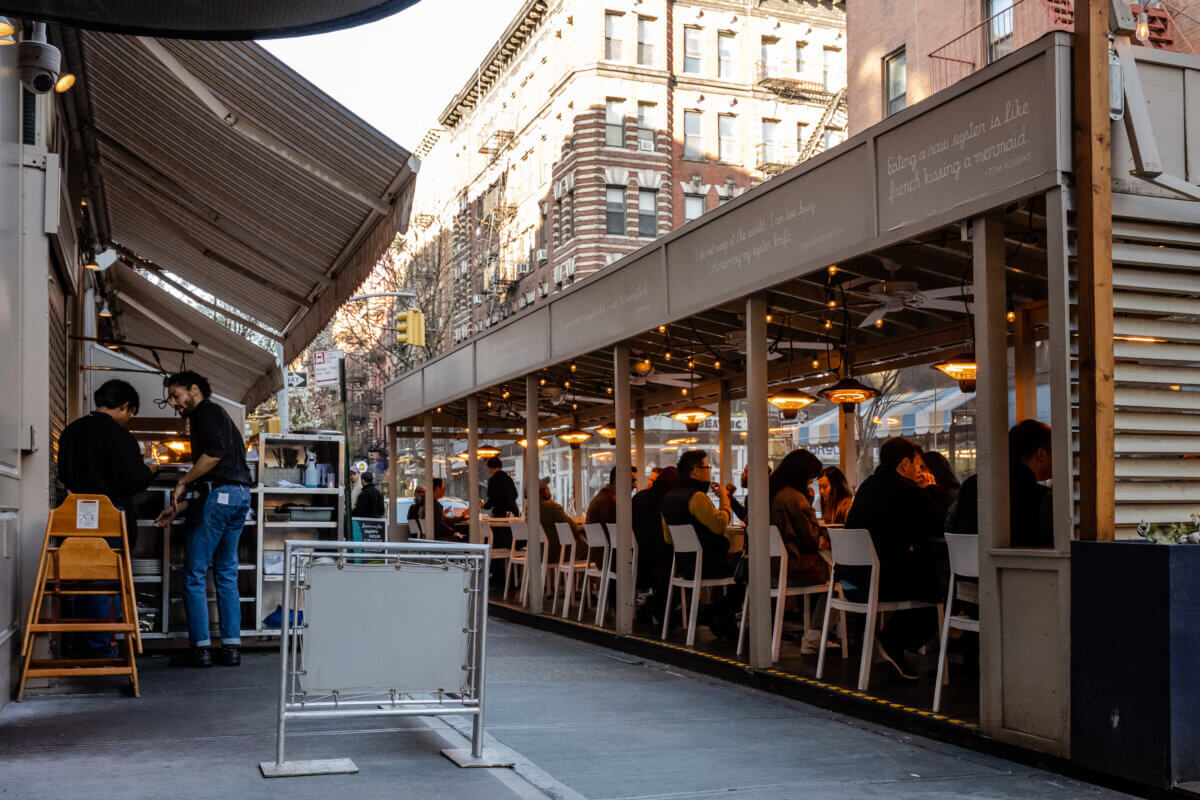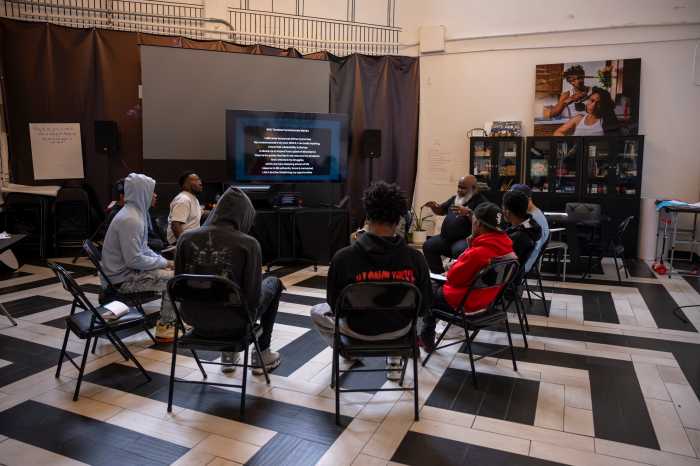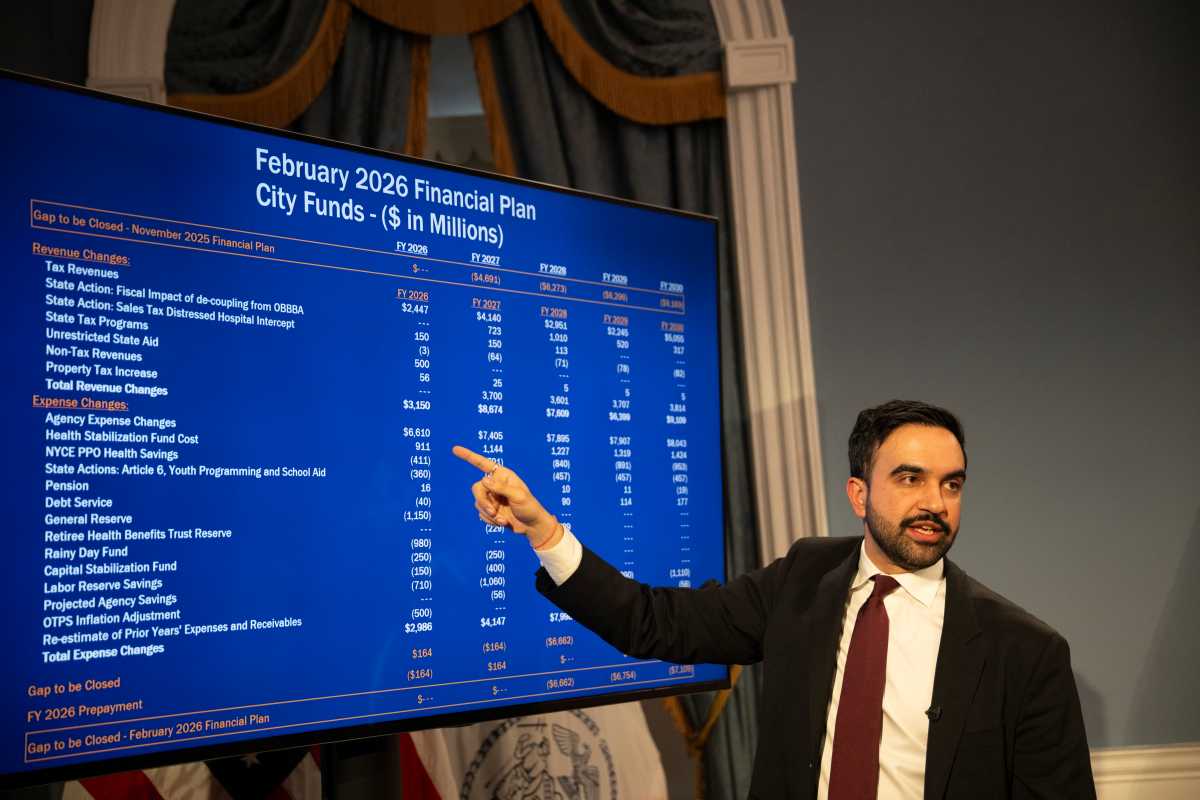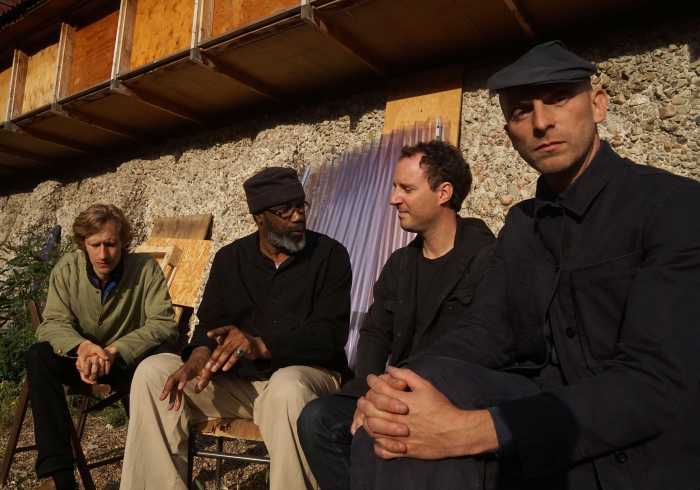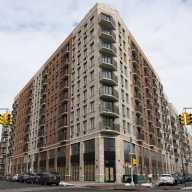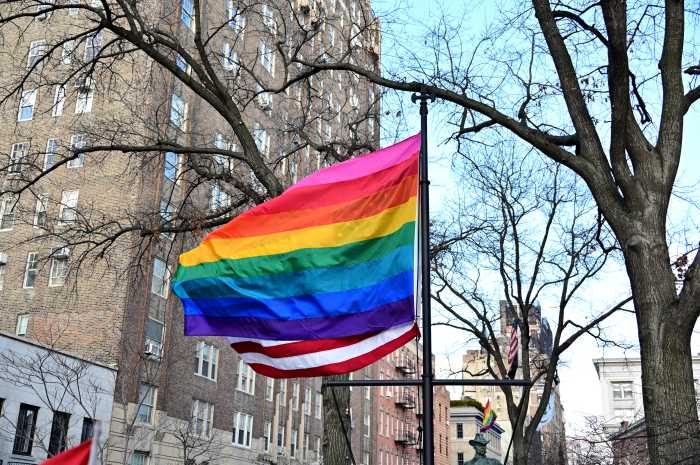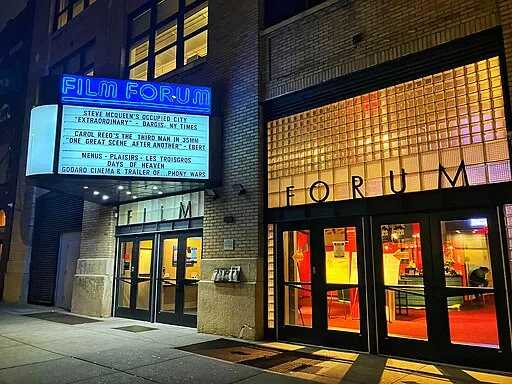Outdoor dining may soon return to New York City’s vibrant streets all year-round, despite winter weather, if a Brooklyn lawmaker gets his way.
City Council Member Lincoln Restler introduced new legislation on Thursday to reinstate year-round open dining alongside streets and ease the permit process for restaurants that wish to participate. The bill includes additional requirements for snow removal and new measures to address sanitation issues.
Restler’s year-round dining bill would include expanding outdoor dining footprints for smaller restaurants, designing safer streets, and allowing more businesses, such as grocery stores, to participate.
Quality of life problems associated with year-round outdoor dining — including abandoned, derelict sheds that invited illegal dumping and vermin infestation — led the city to impose new restrictions on applicants last year. The “frustrating and cost-prohibitive” restrictions, as Restler put it, resulted in only 1,400 applications at the start of the roadway dining season this year in March.
“Outdoor dining was the silver lining of the pandemic,” Restler said. “While a legislative overhaul of the program was required to formalize rules and processes, it has unfortunately forced restaurants to jump through arduous hurdles to participate in the program and has dramatically reduced the number of businesses benefiting from outdoor dining.”
The current program’s restrictions require roadway cafes to be seasonal, meaning the restaurant is responsible for spending “thousands to build, take down, store, and rebuild their setups every year—while adding other unnecessary restrictions to outdoor cafes,” according to Andrew Rigie, executive director of NYC Hospitality Alliance.
In Brooklyn, more than 12,000 restaurants had outdoor dining in 2021, with an estimated 8,000 of them featuring roadway cafes. Borough President Antonio Reynoso introduced the program in 2020 as a response to the COVID-19 pandemic, and the city quickly adopted it to help save thousands of restaurants at a time when capacity restrictions kept diners away.
“Since then, the city has taken the program two steps back, making outdoor dining too costly and inaccessible for far too many restaurants,” Reynoso said Thursday.
The new bill allows restaurants with smaller curb and roadside spaces to still participate in the program, if adjacent businesses permit. Furthermore, Restler wants to change clearance rules to allow roadway dining up to eight feet from an intersection, down from its original 20 feet, meaning pedestrians and drivers have a greater area to watch out for oncoming vehicles.
The bill will also include businesses licensed by the New York State Department of Agriculture to participate in the program. That could make it possible for businesses such as bodegas to also offer outdoor dining.
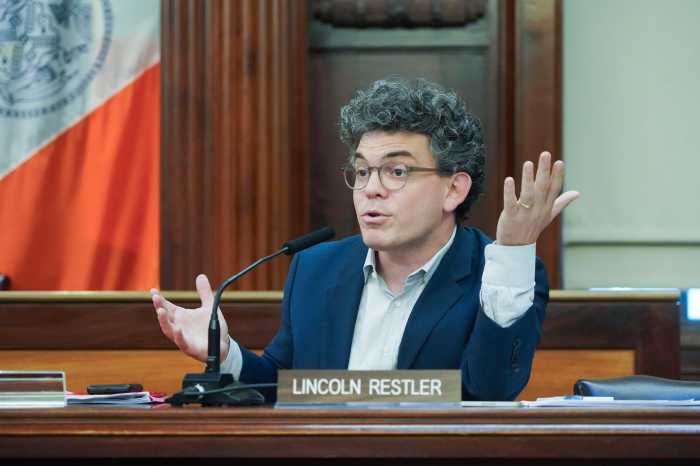
Co-sponsors of the bill include City Council Members Julie Menin, Shahana Hanif, Shekar Krishnan, Keith Powers, Crystal Hudson, and Chi Ossé, who said the legislation would restore outdoor dining to a practical part of everyday New York life.
“During the pandemic, these spaces allowed New Yorkers to gather safely with friends and family, reminding us how joyful our streets can be when opened to everyone,” Ossé said. “Now, we must cut through the red tape and create a simpler, more accessible system that offers small business owners a clear path to participation. Making outdoor dining a permanent fixture will strengthen our local restaurants and breathe new life into every neighborhood.”
The bill has the support of nonprofit street advocacy group Open Plans.
“The legislation introduced today is a major, much-needed step toward restoring both the scale and year-round schedule of the original program, while preserving key reforms that have helped address prior issues that arose,” said Open Plans Co-Executive Director Sara Lind. “By restoring year-round outdoor dining and simplifying the process for restaurants, the City Council is making it possible for more businesses to succeed and creating more time and more ways for New Yorkers to enjoy public spaces.”
This story first appeared on Brooklyn Paper’s sister site AMNY


